0 Comments
1. Why did you choose this particular location to study abroad?
I chose to study abroad in Galway, Ireland because my family on my dad’s side is from Ireland. After hearing stories about my family lineage, I was very intrigued with the idea of going back to where it all began. Plus, while growing up, we are all showed an idea of Ireland that is almost like a fantasy. I wanted to know how accurate that fantasy was. 2. What was the most meaningful interaction you have had with a local? The most meaningful interaction I had occurred right after I had arrived in Ireland. It was with a film professor at NUI Galway at little pub right down the road from where I live. He told me to have a complete open mind and to listen. At first, I thought he was talking about politics, but then I figured out what he had meant later. He wanted me to listen to people to know their story. Even though Ireland is a small country, everyone who lives here has had a very different life. He wanted me to listen to understand the people better. I have taken this advice to heart, and I think it has opened my eyes a little bit more. Now I have a greater appreciation for the people here. 3. Have you had the opportunity to explore your city? Where have you ventured, and why did you select those places? I have had the pleasure of exploring Galway. There is so much history to be told by this city. I have visited Quay Street, aka Shoppe Street, the Spanish Arch, Claddagh, and Eyre Square here in Galway. I visited these places because they all have an important meaning to how the city of Galway was formed. Each one was significant in Galway and continues to be significant in Galway. 4. How does your major tie into your study abroad plans? It was my intention to take a class here in Biology, but unfortunately the classes would not work with my schedule. However, I am taking a practical ethics course and we are specifically looking at stem cell research and non-invasive prenatal testing, which are fields in biology that I am interested in. When it comes to science, it is important to know the ethical ramifications that might come out of doing certain research. 5. With a theater minor, do you plan on seeing any performances or shows while abroad? Already I have seen a few plays that have been shown here at NUI Galway. I would also like to go see a production at the Abbey Theatre in Dublin, which is the National Theatre in Ireland. I also plan on hopefully participating in some productions while I am here. I already had the chance to act in a short film since I have been here, and I hope there will still be more to come. 1. Why did you choose this particular location to study abroad?
I chose Scotland after thoroughly searching all the available programs. I knew I wanted to go for a whole semester, and I was looking to go somewhere that is predominantly English-speaking. This is my first experience leaving the US so I wanted to allow myself some sort of comfort zone. After narrowing down the possibilities, I chose Scotland because I knew that I would be able to take courses that would fit well with my two majors (International Studies and Publishing & Editing). I was also drawn to Scotland’s rich history of clansmen, kings and queens, and folklore. 2. What was the most meaningful interaction you have had with a local? Some of the most meaningful interactions I have had with locals here in Scotland have been with the Scottish students I have met. Most of my classes are with third and fourth-year students who have helped me to figure out things like how to turn in assignments on the student portal. I also have a friend, Connor, who is a first-year student. He studied US Civil War history in secondary school so we have lots of fun comparing perspectives on history, politics, and the differences between the Scottish and American education systems. 3. Have you had the opportunity to explore your city? Where have you ventured, and why did you select those places? I go to Stirling about once a week. It is one of Scotland’s smaller cities and is within walking distance from campus. I go there to have dinner with friends, go shopping, and to just walk around. If you’d like to see photos of Stirling, check out the blog post I wrote about it! 4. How does your major tie into your study abroad plans? Two of the three classes I am taking are English literature courses that I hope to receive credit transfer approval for two course requirements. The other course, Religion, Ethics, and Society, will transfer as one of my pre-approved electives for International Studies. Beyond academics, however, my International Studies major had a large influence on my study abroad plans. I knew that a cross-cultural experience would complement what I have learned in SU’s classrooms. Since coming here, I have had the opportunity to talk about the current political situations in the home countries of many friends I have made. For example, I have learned a lot about the current inter-party tensions in the Swedish parliament, and how immigrants and refugees have impacted daily life in European countries like Sweden. These conversations, relative to my studies, have given me the chance to hear the perspectives of someone who has witnessed the effects of these political situations first-hand. 5. Given that it is your first adventure outside of the U.S., what were you most excited for while prepping for your abroad trip? I was excited to finally have the chance to travel to other countries. I wanted to see all of the beautiful scenery of Scotland first hand, and not just in photos/videos online. I planned on taking full advantage of being in Europe, with access to visiting to new places that I have never had before. I’m happy to say that I have already done a good bit of both of these! I’ve taken many hours to soak in the beauty of the Scottish landscape, going on walks and hiking up mountains, and I have been fortunate to use money I saved over the summer to go on day and weekend trips to other countries like Germany and England. 1. Why did you choose this particular location to study abroad?
Ideally I wanted to travel somewhere that spoke english and had vibrant art and city life, I liked Liverpool because it's a smaller city compared to New York or London but there are still tons of museums, restaurants, and other places to explore that are easily accessed through public transportation. Additionally, I was excited to go on a program that few Susquehanna students have been on. 2. What was the most meaningful interaction you have had with a local? My favorite interactions have been with the staff of my favorite cafe. I work on my homework there, mooch off their free wifi, and enjoy conversation with the baristas and wait-staff. All off them are very friendly and curious to Americans coming, as a lot of the study abroad students have made the cafe a second home. I've enjoyed talking to them about not only American and their experiences but of the oddities of Britain and our favorite music, and have been given amazing insight o the glories of British pastries. 3. Have you had the opportunity to explore your city? Where have you ventured, and why did you select those places?I began exploring the city with organized group trips, we went to Sefton Park, near my dorm, and ventured into the city center to see the Albert Docks and the shopping area; they also plan to take us to see the Cathedrals as part of our "British Life" course. I've traveled in separately with friends to check out pubs to watch Liverpool FC games and wandered around with a group, finding shops we liked and wandering into the free museums. I'm lucky to be here during the Liverpool Biennial, so I'm working to go to more galleries and around the city to see the special art that they have on display. I also have a list of places to visit that I've skimmed off Pinterest and some of the travel brochures given to abroad students. 4. How does your major tie into your study abroad plans? As a Creative Writing and Editing/Publishing major, I will be taking a poetry class with UK students, and am also taking an art class that I hope will stimulate my creativity further. Although I initially hoped to take some radio classes to fulfill my Broadcasting minor, I instead am planning to join their radio station recreationally to get involved. 5. In order to challenge yourself, how have you stepped out of your comfort zone since being abroad and have you continued to strive for new experiences? One of my challenges has been to allow myself time for solitude; I'm more responsible for myself here, so I'm trying to block out time to be responsible and do things like grocery shop with an actual list, balance my budget, and go to the park for a run. However, I'm also challenging myself to adventure out while I'm here, taking opportunities for day trips to Chester and London, and befriending international students who are interested in exploring the city and planning some weekends to other European countries. I've placed a priority of making this my home, so I'm trying to experience Europe while finding a slice of Liverpool to call my own. 1. Why did you choose this particular location to study abroad?
I chose South Africa because I wanted to go somewhere where I won’t meet too many SU students. I wanted to challenge myself in an unfamiliar environment. 2. What was the most meaningful interaction you have had with a local? I’ve made a good friend during my time here and we talked about what it’s like growing up as Black person post-apartheid. I always enjoy his company and it’s going to be sad to say goodbye. 3. Have you had the opportunity to explore your city? Where have you ventured, and why did you select those places? I have seen a fair amount of the city. I have went to a few art galleries because art is an important means of communicating one’s story and culture, so I found it imperative to go. I have also made my way to a few restaurants. When I’m another country, you have to try the food! 4. How does your major tie into your study abroad plans? As a psychology major, I saw this as a way to observe a different set of people with different views on things than that of most Americans. I learned a lot in my psychology class here and I feel that I’ve gained knowledge here that I might not have back home. 5. How has being abroad on your own rather than with family affected your travel experience? Being abroad on my own has forced me to be more social than normal. I also feel that it provided much more independence. The only person I needed to answer to was myself, which was a nice experience to have and I feel that I’ve grown a lot because of it. 1. Why did you choose this particular location to study abroad?
I chose this location to study abroad because I wanted to somewhere where the culture is drastically different from the U.S. We tend to value individual accomplishments and rights while Japan has a very collective mentality woven into their social environment. I thought it would be interesting to look at the world from a different perspective. It helps that I was already interested in the Japanese language before finding out that this GO trip was offered. 2. What was the most meaningful interaction you have had with a local? The most meaningful interaction I had with a local would have to be when I traveled outside a Nagoya and a man (who kindly asked me to refer to him as Ken-chan, which is extremely informal, and not a common way to refer to a stranger) allowed me to stay in his home for the night and made sure I was fed and well taken care of despite the language barrier. Kindness and compassion have no language I suppose. 3. Have you had the opportunity to explore your city? Where have you ventured, and why did you select those places? I went outside of Nagoya because I had a Japanese friend that lived there that wanted me to come visit before she went back to New Zealand to continue studying English. It was a very last minute thing and I knew nothing of Nagoya or the surrounding towns before I went there but it was nice to be able to experience the slower paced life in Japan, compared to Tokyo, where everyone is in a rush all the time. 4. How does your major tie into your study abroad plans? My major is International Studies with a focus on Comparative Cultures, so I think it fits my study abroad experience pretty well. It's fairly easy to compare and contrast two cultures that are so vastly different from each other. 5. How have you prepared in terms of language for Tokyo, and has it made a difference in your abroad experience thus far? The Japanese language uses a combination of 3 alphabets; Hiragana, Katakana, and Kanji. I taught myself the first 2 before I got here and I also knew how to introduce myself, some basic survival phrases regarding how to ask where things are, and some casual phrases that are used during conversation with friends. It has helped immensely in the sense that I already had a foundation and now I am just building off of that instead of learning from scratch. 1. Why did you choose this particular location to study abroad?
I chose to study abroad in Argentina because I first fell in love with the people. (Then later I fell in love with the food.) Studying Spanish and knowing that it’s impossible to really learn a language without living it in the context of its culture, I always planned on spending part of my life in a Spanish-speaking country. So my freshman year, when two of the best people in the whole world came from Argentina on Fulbright scholarships to teach Spanish in the Modern Language Department at SU, I realized just how much I didn’t know about Latin America. Through them, my eyes were opened to how varied the language and culture is throughout the region. And without having yet set foot on the continent, I had felt so wholly and affectionately embraced by a part of the world that I had yet to meet. So, naturally, I decided then and there that I had to choose the experience that my entire high school Spanish education had least prepared me for -- I had to go to South America. And it absolutely had to be Argentina. 2. What was the most meaningful interaction you have had with a local? Because I am wildly social and can never pass up an opportunity to practice speaking Spanish with a native speaker, there have been well over a million little moments that I’ve had with locals and each one has meant so much to me -- all of them examples of the way in which the people here unhesitatingly embrace you despite having just met you. However, I think that the most meaningful moment for me so far was the moment when the doorman of my building -- who might just be my favorite person in all of Buenos Aires -- told me that my Spanish has gotten better. Having always been kind to me from the moment I first arrived, my doorman has never let me pass by without smiling and asking me how I am. Although our interactions are usually short, they have definitely been improving in quality as I have gradually appeared less confused and he has gradually felt less compelled to pause to ask if I understand him. Realizing that he’s been watching me grow through all of our brief moments in passing, I could have cried the day that he chose to take the elevator with me up to my floor just to talk to me for a minute longer and tell me that he noticed my Spanish was improving. 3.Have you had the opportunity to explore your city? Where have you ventured, and why did you select those places? There’s not a day that I haven’t spent exploring the city, so after more than 3 months of living here I have gotten to see A LOT of it. To me, one of the most beautiful things about Buenos Aires is the way that it makes you feel like you’re living in a dozen other cities all in one: the beautiful combination of classic and modern architecture reminiscent of Europe, the bright lights of the nightlife on Avenida Corrientes identical to that of Times Square, the charming and colorful old-world feel of the cobblestone streets of San Telmo that make you forget that you’re living in a metropolis -- totally different worlds all just a couple of minutes apart. My favorite way to venture is by accident, whether that be in the form of getting lost or just deciding to keep walking until I get tired. And if I’m venturing somewhere with a purpose instead of wandering aimlessly, the reason 99.99% of the time is food. And my passion food has led me to not only some of the most beautiful but also the most delicious places in Buenos Aires, for sure. So it’s a win-win. 4. How does your major tie into your study abroad plans? As a Spanish major, it’s pretty obvious how my major ties into my study abroad plans. But beyond the obvious, I feel as though my passion for foreign language and culture has really shaped my study abroad experience in terms of the type of relationship I have with the community in which I live. Being able to communicate and connect to people in the language they best understand has allowed me to make major leaps in terms cultural understanding and also has helped to expand my linguistic understanding of the ways in which a language changes but also stays the same in different sociocultural contexts. 5. Have you noticed any differences with the usage of the Spanish language in another country than in the United States? Claroooo. In Buenos Aires, they don’t speak Spanish, they speak castellano (Okay so actually castellanoand Spanish are synonymous, but sometimes you’d think it wasn’t). To speak Buenos Aires slang/lunfardolike a true porteño is an absolute art because of how distinct it is from literally every other type of Spanish. And I’m not just talking about a couple words and phrases. I’m talking about restructuring entire conjugations. Why? Because somos porteños, that’s why. Y por eso, I think I might have some explaining in the classroom when I come back. ¿O pensás vos que me van a entender igual? |
Archives
April 2019
Categories |

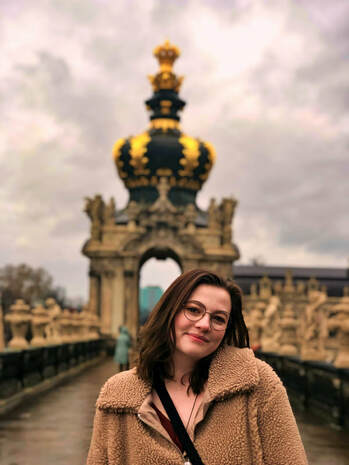
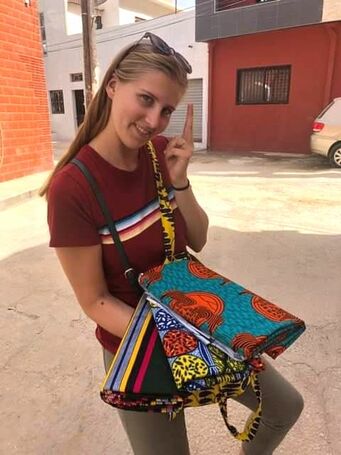

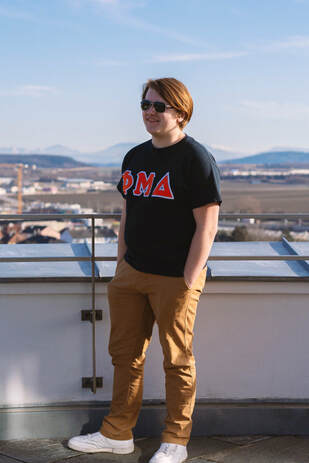
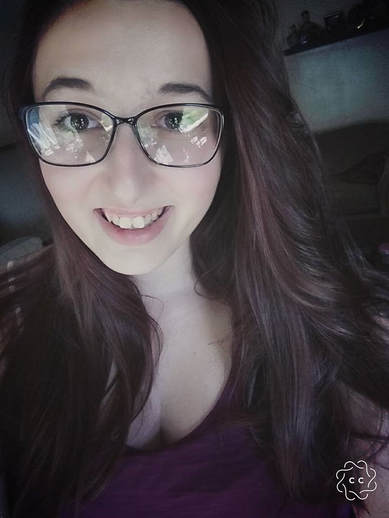
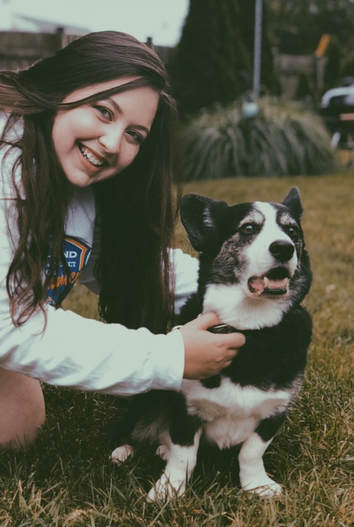
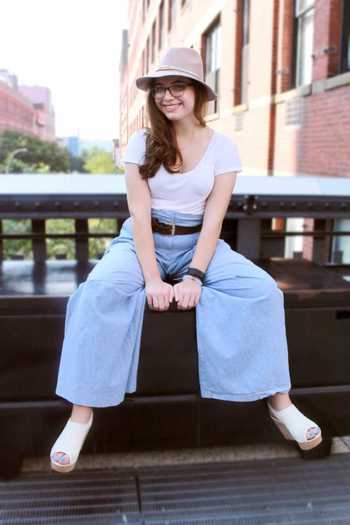
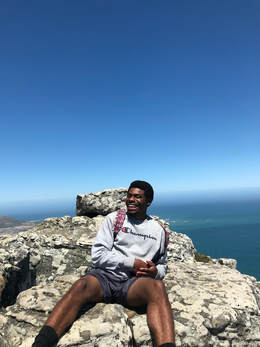
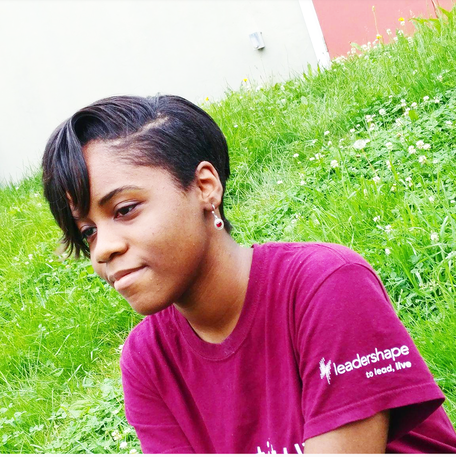
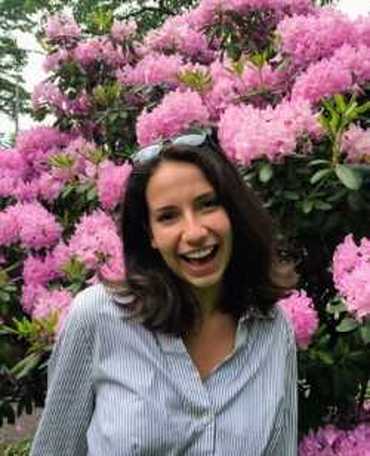
 RSS Feed
RSS Feed
